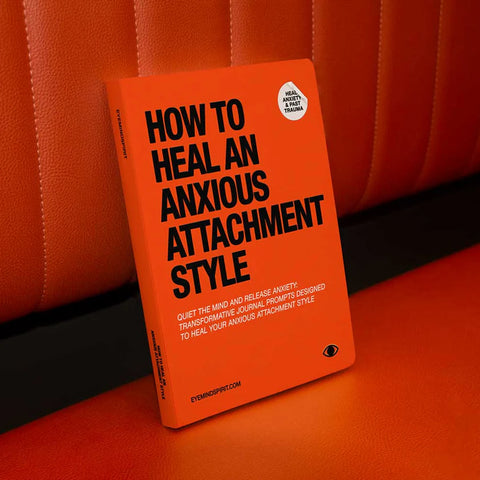Do you often find yourself worrying about being abandoned or rejected in your relationships? If you constantly crave reassurance from your partner, overanalyze every interaction, or feel insecure about where you stand, you might have an anxious attachment style.
While this can feel overwhelming, the good news is that with the right tools and self-awareness, it’s possible to heal and build secure, healthy relationships.
Let’s dive into how to fix an anxious attachment style and transform your relationships for the better.

Understanding Anxious Attachment Style
Anxious attachment develops in childhood, often as a result of inconsistent care from parents or caregivers. You might have experienced emotional highs and lows, leaving you unsure of when or if your needs would be met. This inconsistency can carry over into adult relationships, where you may find yourself overly focused on gaining approval or reassurance, sometimes leading to behaviors like clinginess or jealousy.
Healing starts with understanding the root cause of your anxious attachment. Reflect on your childhood experiences and recognize how they shaped your emotional patterns. This self-awareness can serve as the foundation for addressing and transforming your attachment style.
Rewiring Your Subconscious Mind
One of the most effective ways to heal anxious attachment is by working on your subconscious mind.
Often, our deepest beliefs about love and relationships are stored in our subconscious, which can fuel feelings of insecurity or fear. These beliefs may manifest in thoughts like, "I'm not worthy of love," or "Everyone will eventually leave me." To heal, you must disrupt these negative patterns and replace them with new, empowering beliefs.
Techniques like journaling, affirmations, and visualization can help you rewire your mind. The How to Heal an Anxious Attachment Style journal specifically guides you through shadow work and self-reflection exercises that target your subconscious programming.
Through consistent practice, you can create new neural pathways that encourage healthier, more secure thoughts and behaviors.
Developing Emotional Self-Sufficiency
A core part of anxious attachment is relying on others for emotional validation and reassurance. To fix this, you need to build emotional self-sufficiency, meaning learning to soothe yourself and find comfort within, rather than always seeking it externally.
This doesn't mean cutting off emotional support, but rather finding a balance where you can regulate your emotions independently.
Start by practicing mindfulness and self-care activities that promote calm and self-acceptance. Whether it’s meditation, exercise, or hobbies that bring you joy, these practices can help you build resilience and confidence in your ability to manage emotional challenges.
The How to Heal an Anxious Attachment Style journal includes exercises that teach you to identify and nurture your emotional needs without relying solely on external validation.
Creating Healthier Relationship Patterns
The final step in fixing an anxious attachment style is to create healthier relationship patterns. This involves setting boundaries, improving communication, and learning to trust your partner without constantly seeking reassurance.
Understand that a secure relationship allows for both closeness and space, and that your partner's need for independence is not a reflection of your worth.
Work on expressing your needs and feelings in a way that’s clear but not overly dependent on your partner's response.
Practice being comfortable with moments of uncertainty, recognizing that your self-worth doesn’t hinge on someone else’s actions or approval.
Final Thoughts
Healing from anxious attachment isn’t an overnight process, but with dedication and self-awareness, it is absolutely achievable. By understanding the root causes of your attachment style, rewiring your subconscious mind, and developing emotional self-sufficiency, you can create healthier, more fulfilling relationships.



